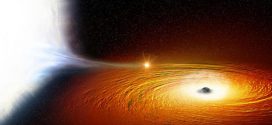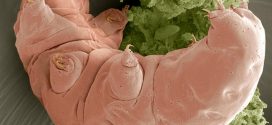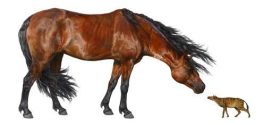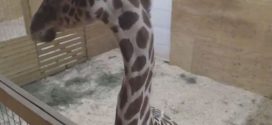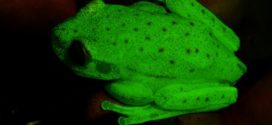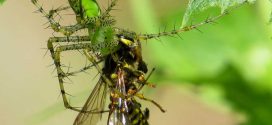Seven earth-sized rocky planets in one fell swoop and all of them are potentially habitable you say? Not so fast. Harvard researchers have taken this a step further, looking at the newly discovered Trappist-1 solar system, which could have seven Earth-like planets. The planets orbit a star similar to our Sun at just the right distance for it not to …
Read More »Science
Astronomers discover star in closest known orbit around black hole
Astronomers have discovered a white dwarf star — a faint, dense star that has burned through most of its hydrogen and helium — circling just 600,000 miles or so from a suspected black hole, in what astronomers are describing as the closest such orbit ever known. The binary system, known as 47 Tucanae X9 and located about 14,800 light years …
Read More »Biofuels reduce engine pollution, NASA Study
A study from NASA has found that jet engines running on biofuels can reduce particle emissions by between 50 and 70 per cent. Its research concluded particle emissions from plane exhausts can be greatly decreased by using a 50:50 blend of aviation fuel and a renewable alternative produced from plant oil. As well as cutting Carbon Dioxide emissions, the mix …
Read More »NASA Budget Reduced Under Donald Trump Plan
President Donald Trump has a vision for the federal government’s budget in 2018, and — among other nicks and cuts to NASA’s projects — it does not include any money for the agency’s equal-parts-bold-and-weird Asteroid Redirect Mission (ARM). Trump’s budget cuts $102 million from the nearly $2 billion NASA spent in 2017 on earth science and global warming research. The …
Read More »Unstructured Proteins Help Tardigrades Survive Desiccation, Says New Research
A new research has identified proteins that tardigrades have evolved to survive extreme dryness. “The big takeaway from our study is that tardigrades have evolved unique genes that allow them to survive drying out,” says Thomas Boothby, the Life Sciences Research Foundation Postdoctoral Fellow at the University of North Carolina, Chapel Hill, and the study’s first author. “In addition, the …
Read More »Mammals Shrink When Earth Heats Up, A New Research Reveals
A new research reveals that warm-blooded animals such as mammals may tend to get smaller as the Earth heats up. This does not include the people. The scientists looked at fossilized teeth and jaw fragments of four animals that existed in the late Paleocene (59 million to 56 million years ago) through the early Eocene (56 million to 48 million …
Read More »NASA Releases First Images Of TRAPPIST-1 System (Photo)
The newly discovered planets of the TRAPPIST-1 system could be a playground for rock-riding microbes. The TRAPPIST-1 system has planetary scientists feeling like kids on Christmas morning. In addition to having a record-breaking number of rocky, Earth-size worlds, at least three of the Earth-size planets are in the “habitable zone” of the star, where liquid water could potentially exist on …
Read More »Animal watch: Zoo Officials Say April the Giraffe is ‘at the end of the pregnancy’
April, the pregnant giraffe at the Animal Adventure Park in Harpursville, New York, is getting closer to giving birth as thousands across the world wait for the calf who will be born on a live feed cam. Animal Adventure Park in Harpursville began streaming Thursday, Feb. 23 on YouTube, showing April the giraffe preparing to give birth. The video was …
Read More »China’s ‘airpocalypse’ linked to Arctic sea ice loss, says new research
China has become a world leader in the fight against global warming, but its severe winter air pollution has worsened—likely as a result of changing atmospheric circulation caused by climate change, according to a new study published in the journal Science Advances. The research published in the U.S. journal Science Advances suggests that melting Arctic sea ice and increasing Eurasian …
Read More »Scientists announce discovery of first fluorescent frog
Scientists have discovered a naturally fluorescent polka-dot tree frog in Amazon basin near Argentina. At first sight, the frog looks just another plain colored creature but it actually glows neon green when exposed to ultraviolent light. This makes it the world’s first amphibian with a remarkable ability to glow in dark. According to a new report in the Proceedings of …
Read More »Spiders eat 400-800 million tons of prey every year, says new research
It’s enough to make an arachnophobia sufferer wince — spiders devour up to 800 million tonnes of prey a year, making them one of the world’s most voracious predators, scientists found. Most of their victims are insects, but the largest tropical species occasionally make a meal of vertebrates such as frogs, lizards, fish and small mammals, said experts. There are …
Read More » Canada Journal – News of the World Articles and videos to bring you the biggest Canadian news stories from across the country every day
Canada Journal – News of the World Articles and videos to bring you the biggest Canadian news stories from across the country every day

